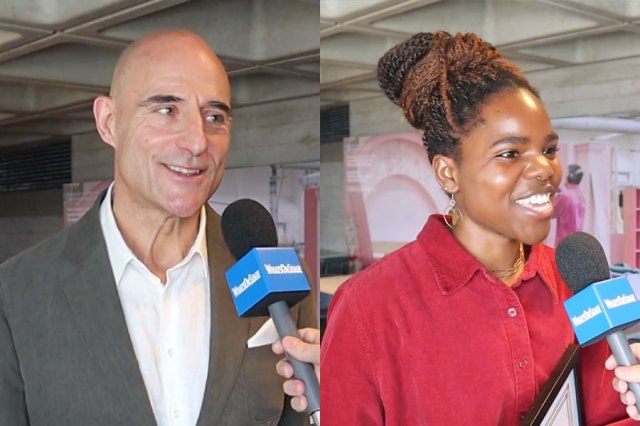
Annie Ernaux’s 2008 book Les Années, describing not just her tumultuous lived life but also her dreams, perceptions and significant chunks of history between the 1940s and the beginning of the 21st century, has been described as a hybrid memoir. That’s worth bearing in mind when approaching this stage distillation, directed and originally adapted by Eline Arbo (with an English version by Stephanie Bain), which is essentially a theatrical hybrid.
Whether The Years is a fusion of meaty drama and poetic performance art, or of convention and pretension, is a question. I found myself torn between being moved by its female driven authenticity and the consistent vision of one woman navigating seismic times, then utterly frustrated by its elliptical nature. It’s certainly not a good play by any traditional standards, but it has a haunting insistence that can’t be written off.
Five superb actresses – Deborah Findlay, Romola Garai, Gina McKee, Anjli Mohindra, Harmony Rose-Bremner – play the unnamed central woman (although we can probably get away with calling her Annie) at different points in her life, from youth to benignly randy latter years. The handover between ages is often beautifully done (at one point the younger Garai and older McKee sit side-by-side at a family dinner table speaking simultaneously then the former fades out and we are into the next stage of this woman’s life) and the cast embody each progression with grace and precision.
Unfortunately, this fine team are also required to enact rites-of-passage experiences such as masturbation and sex that are staged with such a disappointing puerility and lack of imagination that make the heart sink, recalling student drama exercises at their most bizarre. There has been recent media attention regarding (specifically male) audience reaction to the section where the central character undergoes an abortion. In performance, it’s neither sensationalised nor trivialised, but it’s undeniably affecting, and Garai plays it with truth and sensitivity.
The depiction of male characters, such as our heroine’s son or her cigar-chomping uncle, is perfunctory to the point of roughness, but I suspect that is less a shortcoming in the acting talent than a lack of specificity in the direction. Any moments where the performers stray from naturalistic movement is similarly unfocused and sloppy. The dropping in of only tangentially relevant global historical events is clumsy but Varja Klosse’s mood-setting lighting is wonderful.
The story is punctuated by photographs being taken, snapshots of a life slipping by, the actors posing against a blank white sheet before charging off into the next tranche of hope or chaos. It’s a lovely recurring motif, and the final image of all five woman, all magnificent, at different stages of maturity but each resplendent in her power, is unforgettable.
Despite my reservations, I defy anybody to be unmoved by that conclusion or by elder Findlay’s summation of her life, as pre-painted artists canvasses emblazoned with ‘Whore’ and ‘Choice’, or with blood, revolve overhead, or when McKee as the central woman’s later middle years incarnation talks about the limitations placed on her just by being female.
The Years is a bewildering mixed bag as a piece of theatre, but it’s strangely magnificent. It’s tremendously self-indulgent, sometimes clumsily staged… but it’s also gamely, sometimes stunningly, performed and full of roaring life.
















